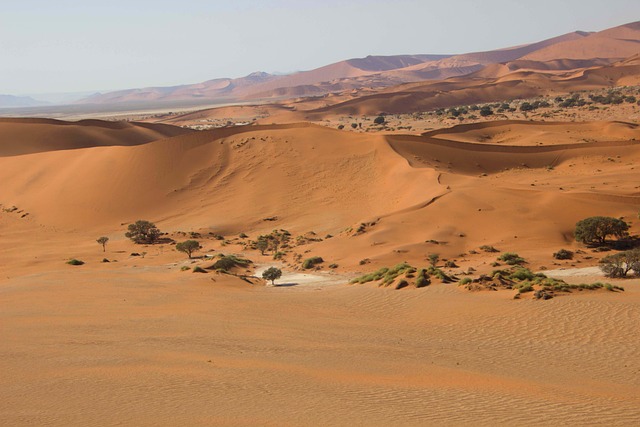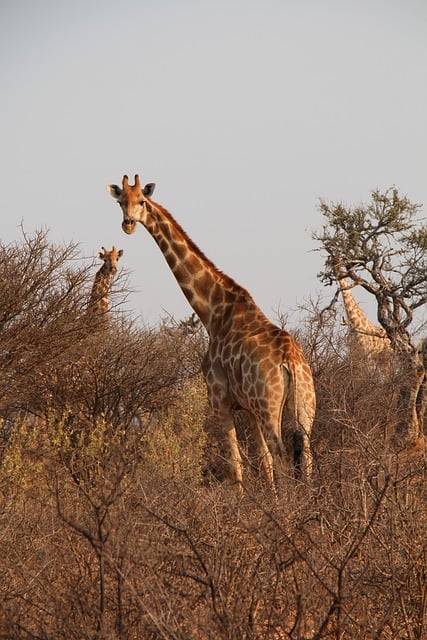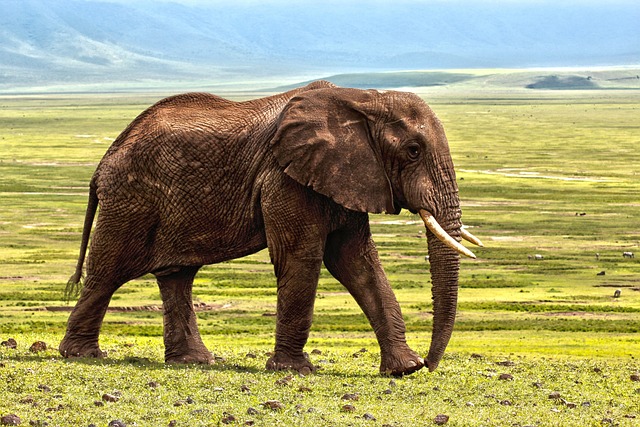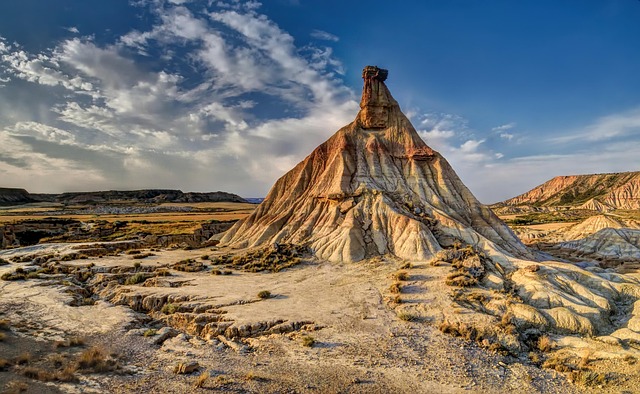The Evening Desert Safari Dubai has evolved to meet growing demand for eco-friendly travel, integrating sustainable practices like electric vehicles and responsible waste management while preserving the region's unique ecosystems. Tour operators prioritize environmental consciousness, educating visitors about conservation efforts and local culture, all while delivering thrilling activities and breathtaking experiences under the starry desert sky. By adopting green strategies, Dubai promotes responsible tourism, attracting visitors seeking authentic experiences that contribute to the preservation of its natural beauty.
“Uncover the magic of nature at night with eco-conscious night safari planners, offering a unique twist on traditional desert adventures. As demand for sustainable travel soars, this article explores the allure of the Evening Desert Safari Dubai. We delve into the challenges and strategies of incorporating green practices in tourism, highlighting key components for sustainable tour operations. Through case studies, we showcase successful eco-initiatives, providing insights for planners worldwide aiming to create memorable, environmentally friendly night safaris.”
- Understanding the Demand for Eco-Friendly Safaris
- The Unique Appeal of Evening Desert Safari Dubai
- Challenges in Implementing Green Practices in the Tourism Sector
- Strategies for Planning an Eco-Conscious Night Safari Experience
- Key Components of Sustainable Safari Tour Operations
- Case Studies: Successful Eco-Tourism Initiatives in Dubai's Desert
- Future Prospects and Global Lessons Learned for Night Safari Planners
Understanding the Demand for Eco-Friendly Safaris

In recent years, there’s been a growing demand for eco-friendly and sustainable travel experiences, reflecting a broader societal shift towards environmental consciousness. This trend is particularly evident in popular tourist destinations like Dubai, where activities such as the Evening Desert Safari have evolved to cater to this new market segment. Travelers are increasingly seeking adventures that not only offer breathtaking experiences but also minimize their ecological footprint.
The appeal of an eco-conscious night safari lies not only in its ability to showcase the beauty of nature but also in its potential to educate and inspire visitors about conservation efforts. In Dubai, for instance, many tour operators are integrating sustainable practices into their Evening Desert Safari packages, using electric vehicles, promoting responsible waste management, and supporting local communities. This growing trend reflects a commitment to preserving the region’s unique ecosystems while offering unforgettable travel experiences.
The Unique Appeal of Evening Desert Safari Dubai

The Evening Desert Safari Dubai offers an unparalleled experience, captivating both locals and visitors alike with its unique blend of adventure and tranquility under the starry desert sky. As the sun sets over the vast dunes, this desert escapade transforms into a magical journey through a landscape that seems straight out of a fairy tale. The allure of watching the desert come alive after dark is irresistible, drawing folks from all walks of life.
Dubai’s evening safari takes visitors on a thrilling ride, offering activities like dune bashing, camel rides, and traditional entertainment. Tourists can enjoy the cool desert breeze, stargaze in awe, and capture breathtaking photos that will last a lifetime. It’s more than just a safari; it’s an immersive experience that showcases the region’s rich cultural heritage while promoting eco-friendly practices in a fragile yet vibrant ecosystem.
Challenges in Implementing Green Practices in the Tourism Sector

Implementing green practices in the tourism sector, particularly for popular attractions like the Evening Desert Safari Dubai, comes with unique challenges. One significant hurdle is balancing environmental sustainability with economic viability. Tour operators must find ways to reduce their ecological footprint while maintaining competitive pricing and attracting visitors seeking authentic experiences. This often involves careful consideration of every aspect of the safari, from transportation methods and energy usage to waste management and water conservation.
Additionally, educating both staff and guests about the importance of eco-friendly practices is crucial. Many tourists, unaware of the environmental impact of their choices, may not support or even resist sustainable initiatives. Effective communication and engagement strategies are essential to changing these perceptions and fostering a culture of responsibility among all stakeholders. Despite these challenges, adopting green practices can enhance the overall visitor experience by showcasing a commitment to preserving the natural beauty that makes destinations like Dubai so captivating.
Strategies for Planning an Eco-Conscious Night Safari Experience

When planning an eco-conscious night safari, such as an Evening Desert Safari Dubai, every detail matters. Start by choosing operators committed to sustainable practices, like using hybrid vehicles or solar power for lighting. Opt for small group sizes to minimize environmental impact and ensure a more personalized experience that respects wildlife habitats.
Incur no unnecessary noise pollution or light disruption in natural habitats. Select tour guides knowledgeable about local ecosystems and dedicated to educating visitors about conservation efforts. Embrace local culture and cuisine, supporting sustainable food options and artisans. And finally, choose souvenirs made from recycled materials or naturally sourced products, ensuring your mementos align with the eco-conscious spirit of the experience.
Key Components of Sustainable Safari Tour Operations

Eco-conscious night safari planners play a vital role in promoting sustainable tourism, especially in popular destinations like Dubai. When it comes to an Evening Desert Safari Dubai, operators must consider several key components to ensure minimal environmental impact while delivering an unforgettable experience. One of the primary aspects is transportation; using fuel-efficient or electric vehicles can significantly reduce carbon emissions during the tour.
Additionally, waste management and conservation are crucial. Planners should encourage responsible littering practices among guests and implement recycling programs where possible. Using local, sustainable food sources and minimizing packaging in buffet spreads can also contribute to a greener tour. Furthermore, education is key; informing tourists about the region’s ecosystem and conservation efforts allows them to appreciate and respect natural habitats, fostering a deeper connection with the desert environment.
Case Studies: Successful Eco-Tourism Initiatives in Dubai's Desert

Dubai, a city renowned for its luxury and innovation, has successfully blended these elements with eco-conscious initiatives in the form of evening desert safaris. These tours showcase the region’s natural beauty while prioritizing sustainability. Case studies highlight successful implementations where local communities and wildlife thrive. For instance, some tour operators use solar-powered vehicles and equipment, minimizing their carbon footprint. They also educate visitors on conservation efforts, fostering a deeper appreciation for the desert ecosystem.
Additionally, these safaris promote responsible waste management and water conservation practices. Some companies even offer night hiking trails and star gazing experiences, encouraging minimal interference with the desert’s natural rhythm. By integrating eco-friendly practices into the popular Evening Desert Safari Dubai experience, these initiatives not only attract tourists but also contribute to the long-term preservation of the region’s unique environment.
Future Prospects and Global Lessons Learned for Night Safari Planners

The demand for eco-conscious night safari experiences, such as the popular Evening Desert Safari Dubai, is rising. While challenges exist in implementing green practices within the tourism sector, strategic planning and key components like sustainable transportation, waste management, and community engagement can make these journeys more harmonious with nature. Successful case studies from Dubai’s desert demonstrate that it’s possible to offer breathtaking adventures while preserving the environment. Looking ahead, global lessons learned offer hope for night safari planners worldwide to create truly sustainable experiences that preserve ecosystems and enrich local communities.
